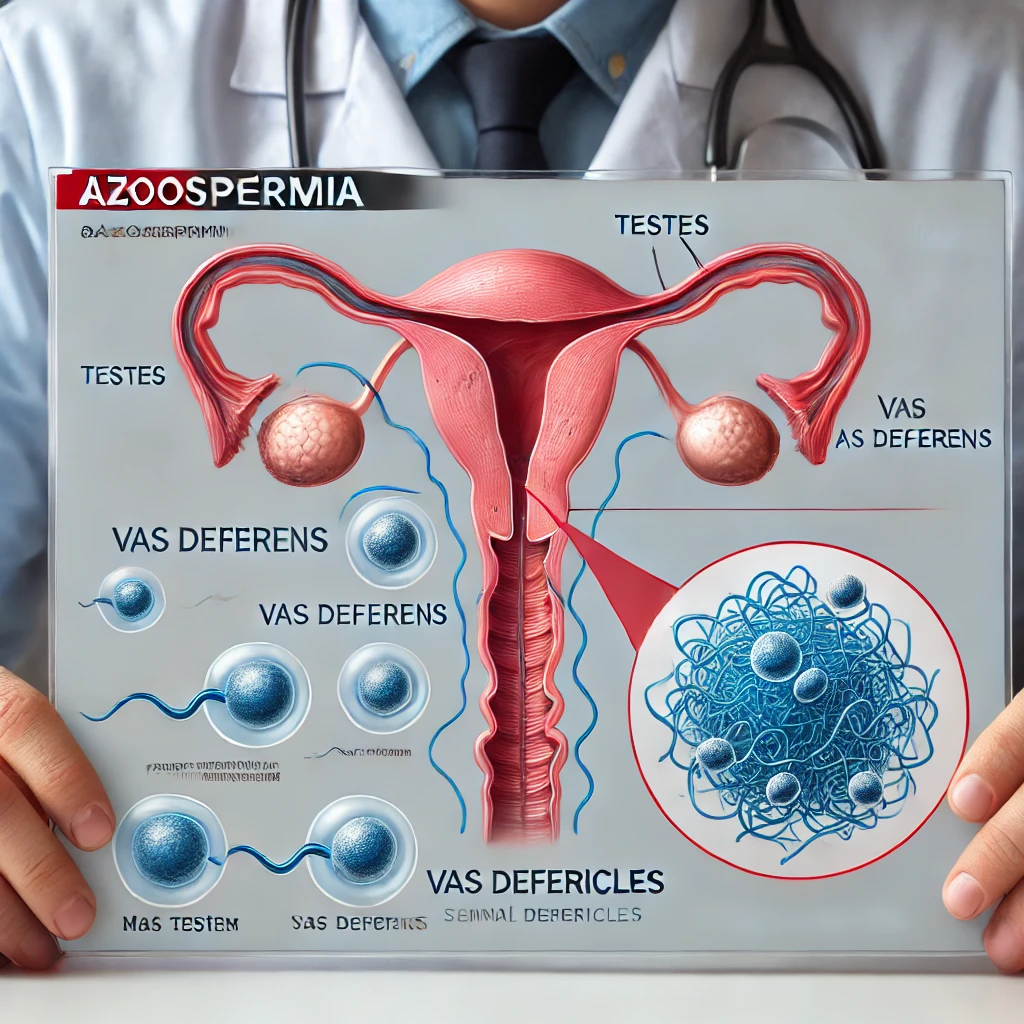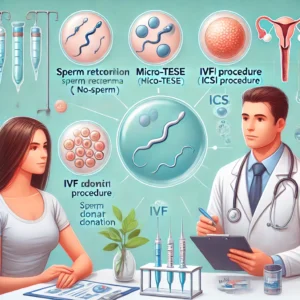
My sperm count is zero how to increase
My Sperm Count is Zero – How to Increase It? Having a zero sperm count, also known as azoospermia, can be a distressing condition for

Can you get pregnant with azoospermia? Azoospermia means that a man’s semen contains no sperm. It affects about 1% of men and up to 15% of those experiencing infertility. If you have received an azoospermia diagnosis, you may wonder whether you can still become a father. Fortunately, modern treatments and alternative options can help you overcome this challenge.
In this guide, we explain the causes, diagnosis, and solutions in clear, straightforward language. Moreover, we offer practical advice that you can discuss with your doctor.
Azoospermia occurs when semen completely lacks sperm. As a result, natural conception becomes impossible. However, medical advancements now allow many men with this condition to have biological children.
There are two primary types of azoospermia:
Understanding the cause of azoospermia helps determine the best treatment path. For example, the causes differ between obstructive and non-obstructive azoospermia.
Yes, you can still father a child, although the approach depends on the type and severity of your condition. For instance, doctors often retrieve sperm from the testicles and then use assisted reproductive technology (ART) such as in vitro fertilization (IVF). Consequently, many couples have achieved successful pregnancies through these methods.
Can you get pregnant with azoospermia? Your fertility specialist actively conducts several tests to diagnose azoospermia and pinpoint its cause. In addition, these tests help determine the most effective treatment plan. Some common diagnostic procedures include:
Your treatment options vary based on whether you have obstructive or non-obstructive azoospermia. Below, we outline the most common approaches.
If doctors cannot retrieve any sperm, you still have options for starting or expanding your family. For example:

My Sperm Count is Zero – How to Increase It? Having a zero sperm count, also known as azoospermia, can be a distressing condition for

My Husband Has No Sperm – How Can I Get Pregnant? My husband has no sperm – how can I get pregnant? Discovering that your

Prolistem, a patented formula, has not been evaluated by the Food and Drug Administration. This product is not intended to diagnose, treat, cure, or prevent any disease.
Copyright © 2025 Prolistem®
Prolistem, a patented formula, has not been evaluated by the Food and Drug Administration. This product is not intended to diagnose, treat, cure, or prevent any disease.
Copyright © 2023 Prolistem®